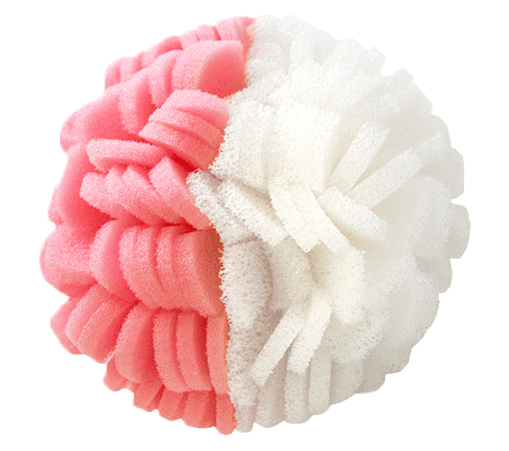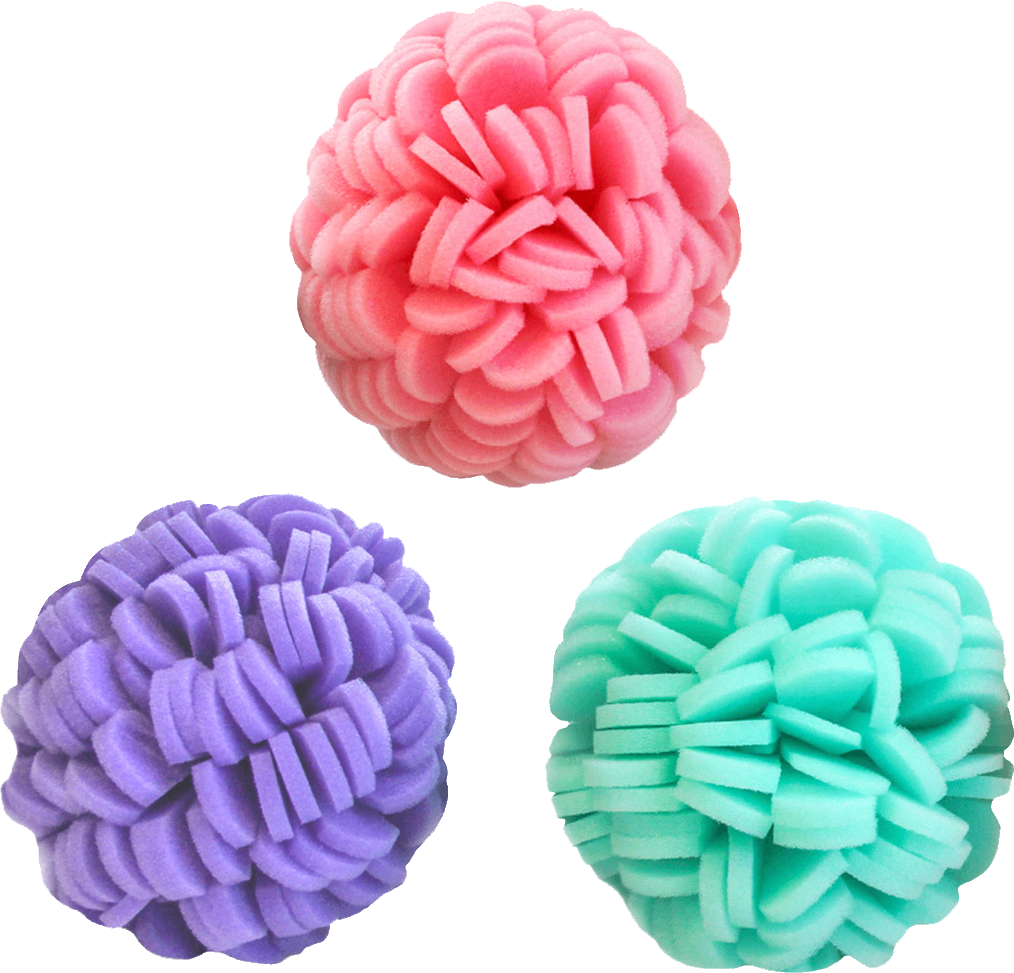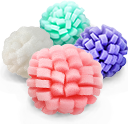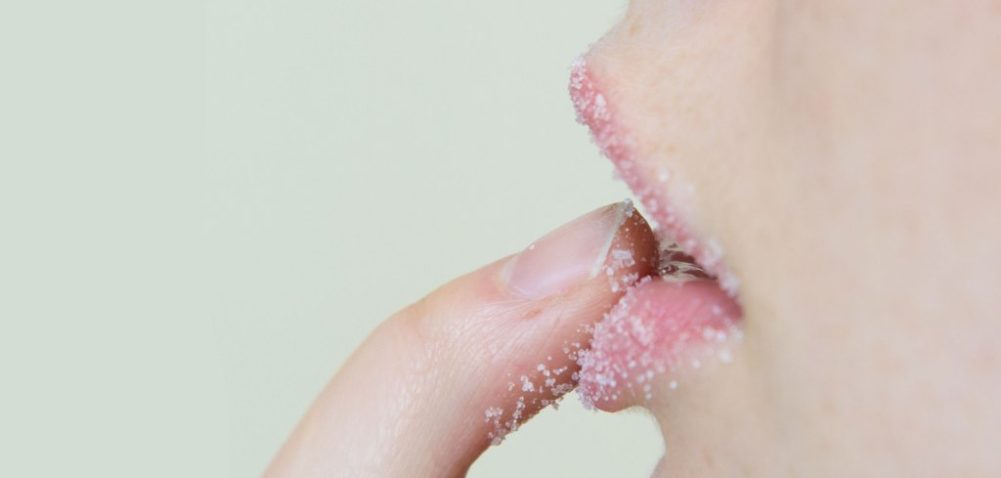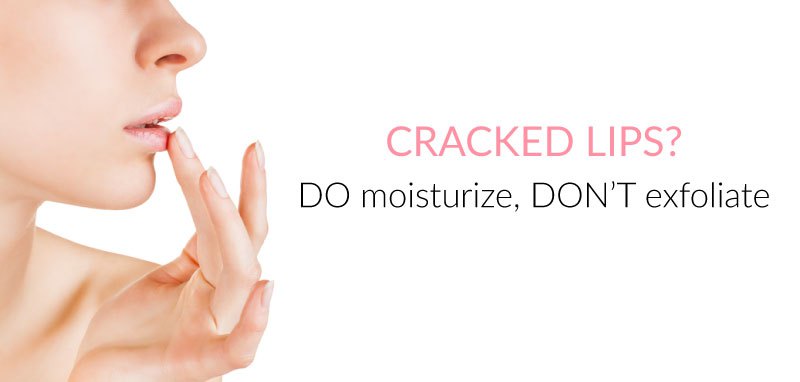On our blog, we frequently talk about the reasons why you should exfoliate and the best methods to exfoliate your skin, especially your face and body. We have recently received several reader inquiries asking us if they should exfoliate their lips as well. After all, lips are made of skin and can become cracked, dry, and flaky – but does that mean that we should be putting chemical exfoliants on our lips, just as we would put on our face and body? ViaBuff investigates!
You Should Not Exfoliate Your Lips
While lips are made of skin, Dr. Neal Schultz notes that this type of skin (called mucous membrane) is significantly different from the skin on most other parts of our body. The skin on your lips has a special top layer that, unlike the rest of the skin on your body, doesn’t accumulate dead skin cells. The layers of live skin cells also differ significantly between these skin types. In the skin on your body, this live layer of skin cells is about 15 cells deep, whereas the live layer of skin in your lips is only about 5 cells deep, meaning that the skin on your lips is much thinner and more delicate than the skin on the rest of your body. Dr. Schultz notes that even if you feel compelled to exfoliate your lips, then you will probably be doing yourself more harm than good. Exfoliating this thin skin can lead to irritation, chapping, and even damage, regardless of whether you use chemical exfoliants like salicylic acid or glycolic acid (which can lead to many complications if accidentally ingested) or physical exfoliants like a loofah, buff, or toothbrush. Picking at or biting off dry flakes of skin won’t benefit your lips either, as this can cause your lips to bleed, become inflamed or irritated, and even impede the wound healing process (Dr. Neal Schultz for DermTV.com, WebMD).
But What if My Lips are Chapped and Flaky?
If your lips feel parched and cracked, then there is a solution to your woes – although exfoliation simply isn’t it. Dr. Neal Schultz recommends using lip sunscreens and moisturizing agents that protect against damaging UV rays and the dehydration that can make your lips appear shriveled and flaky. Harsh or abrasive ingredients may be reaching our lips when we exfoliate or cleanse our faces. That’s why Dr. Cynthia Bailey recommends applying certain lip balms to your lips both before using other skin care products and throughout the day, so as to prevent ingredients from other products from reaching and damaging your lips. If you notice that your lips have not responded to treatment for quite some time, then it is best to consult with your dermatologist as soon as possible. Resilience to treatment may be indicative of allergic cheilitis, a condition in which an allergy to an ingredient causes your lips to become chapped and inflamed. According to Dr. Cynthia Bailey, common irritants include cinnamon, citrus, and menthol, as well as fragrances, flavors, eucalyptus and lanolin, among many others (Dr. Neal Schultz for DermTV.com, Dr. Cynthia Bailey Skincare). Frequently licking your lips can dry out your lips, as can breathing frequently through your mouth instead of your nose. If you notice that you have chronically dry lips, you may want to consider breathing through your nose more frequently and being more conscious of licking your lips, as well as avoiding flavored lip balms that may tempt you to lick your lips more. You should always make sure to apply a lip sunscreen and moisturizer before going outdoors, and reapply it regularly. During the chillier months your lips will benefit immensely if you cover them with a scarf. Using a humidifier in your home or office may also help to prevent further drying on both your lips and body (Mayo Clinic, Healthline).
Bottom Line
Although it theoretically would make sense to exfoliate your lips, in reality this may cause more harm than good. Lips are made of a special type of skin called the mucous membrane, which does not accumulate dead skin cells and is much thinner than the skin on most other parts of our body. Exfoliating it with either chemical or physical exfoliants can lead to irritation, chapping, and damage. In lieu of exfoliating, you can heal your lips by using lip moisturizers and lip sunscreens (make sure that they are broad-spectrum!), avoiding allergens like cinnamon and menthol, and using a humidifier in your home or office. Training yourself to breathe more through your nose than your mouth may also limit lip drying, in addition to covering your mouth with a scarf during the chillier months. Have any more questions? Feel free to send us an email!

